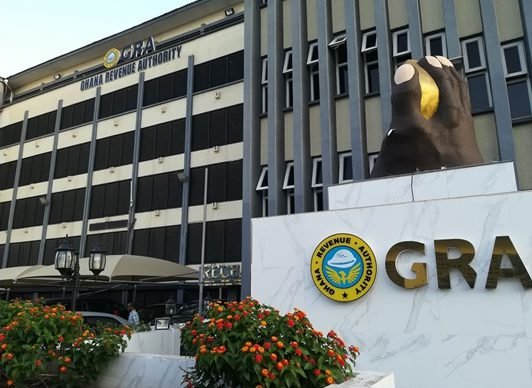The Ghana Revenue Authority (GRA) is actively considering the implementation of a mobile portal for taxpayers to submit their transfer pricing (TP) documentation using their mobile phones.
This move, according to led by Moses Yidana, Head of Transfer Pricing Unit, comes after the GRA successfully introduced an online portal last year, allowing taxpayers to file transfer pricing returns from any location, streamlining the process and eliminating the need for manual submissions at GRA offices.
During a webinar on “Taxing Multinational Enterprises (MNEs) Through Effective Transfer Pricing,” organized by the UK-Ghana Chamber of Commerce (UKGCC) and PwC Ghana, Mr. Yidana emphasized that these measures aim to alleviate the burden on taxpayers and support business growth.
To further reduce the filing burden on taxpayers, the GRA has implemented additional measures, such as No Value-Added transactions. Under this approach, certain documents, such as local and master files, may not be required for submission if the mark-ups on charged fees are within 3 percent. Additionally, if transactional values fall below the Cedi equivalent of USD 200,000.00, local and master files need not be submitted.
Mr. Yidana also disclosed during the webinar that Ghana is making significant progress in its efforts to join the Organisation for Economic Cooperation and Development (OECD) multilateral agreement platform for Country-By-Country Reporting (CBCR) data sharing.
As per Kingsley Owusu-Ewli, a Partner in the Tax Line of Service at PwC Ghana and a speaker at the webinar, transfer pricing is not a tax in itself; rather, it serves to ensure a fair and equitable allocation of income to the country or jurisdiction where the economic activities occur.
Each country holds territorial sovereignty and the authority to impose taxes within its territory. Thus, the Ghanaian government, through the GRA, possesses the right to levy taxes on these economic activities.
Transfer pricing encompasses transactions involving the transfer of properties, as well as the provision of goods and services.
“With Globalisation, companies or multinational enterprises trade across countries. Each country has different tax rates, so with these differences in tax rates and tax laws, there is that incentive or motivation to sometimes price arrangements in a way that may distort the true economic activities or contributions of one state or country versus the other. Hence, the introduction of transfer pricing is a means to ensure that whatever trading or dealings that occur between persons who are in controlled relationships, are done at a price using terms that will ordinarily prevail between independent parties.”
Moses Yidana added that so far as Ghana’s transfer pricing regulation is concerned, the rules of transfer pricing is applicable to both cross border and domestic transactions.
According to him, “if you have a Ghanaian company and you have different entities or businesses, once they begin to deal with each other, the requirement of the law is that such transactions ought to comply with the arm’s length principle”, which means pricing should be fair or at the market price.
Complying with TP disclosures
The speakers remarked that the law requires businesses engaged in controlled relationships to disclose to the GRA, the related parties they dealt with in their financial year. The document must also disclose the nature of transactions and the total amount, the pricing method used, and other documentations which include local and master files of transactions, and a country-by-country.
These documents must be submitted on or 4 months before the end of a business’ financial year. In cases where the taxpayer is unable to file within the stipulated time, they are permitted to apply for an extension and if approved, can be given up to 60 days within which to comply.
According to Mr. Yidana, impacts of non-compliance include huge penalties and reputational damage.
For instance, failure to file transfer pricing returns, in general, attracts a GHC 500 penalty on the first day and GHC 10 daily afterwards, in line with the Revenue Administration Act (Act 915).
“For failure to maintain documentations, you may be penalised, say 75 percent of the tax for that period, depending on the situation. Or, it may even go up to 200 percent depending on the circumstance,” under section 72 of the Revenue Administration Act, he added.
Mr. Yidana lamented that documentation has been one of the GRA’s biggest challenges, as businesses usually wait till the last minute to compile their documents. He appealed to taxpayers to “try as much as possible to comply with the law”.
“We are recommending that taxpayers should ensure that they maintain contemporaneous documentation such that when we come for an audit, we do not have a lot of issues.”
He also urged taxpayers to consult tax experts to compile and submit TP documents, and write to the GRA Commissioner should they require clarity on TP-related issues.
The webinar discussed more pertinent issues, such as the Arm’s Length Pricing standard, the transfer pricing methods acceptable to the GRA, how taxpayers can get guidance on transfer pricing, the data sources the GRA uses, and their preference, Thin Capitalisation as a pricing method, and double taxation treaties.
Abeku Gyan-Quansah, a Partner at PwC Ghana, moderated the webinar, the second in UKGCC/PwC Ghana’s Quarterly Tax Dialogue Series 2023.

